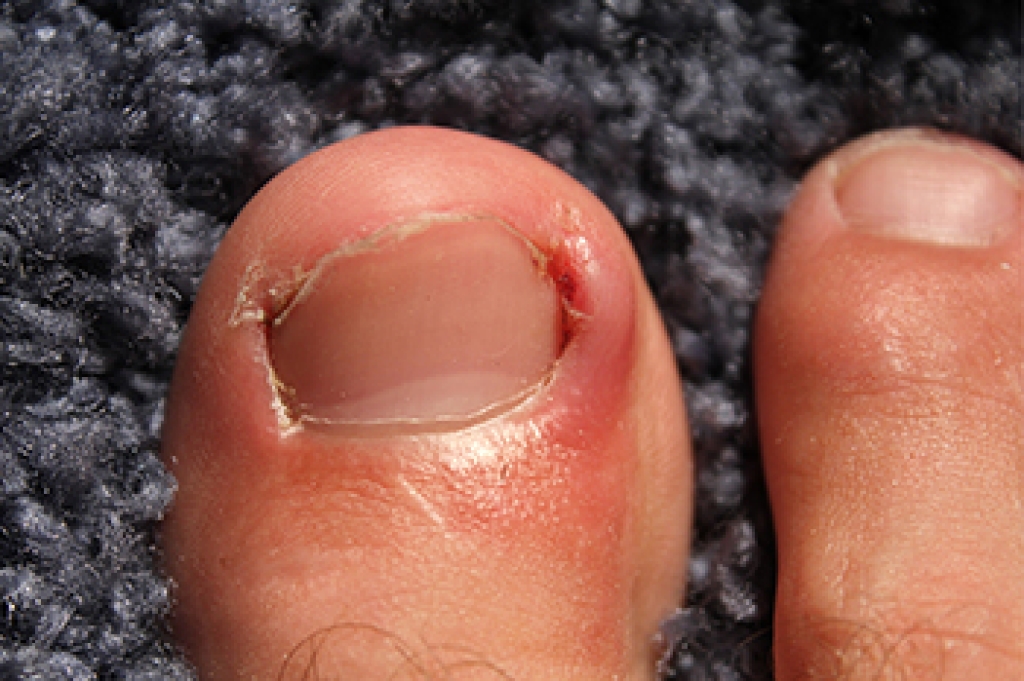
Ingrown toenails can be a painful and bothersome foot condition, but they are often preventable with proper care and understanding of their causes. This troublesome malady occurs when the edge or corner of a toenail grows into the surrounding skin, leading to pain, redness, and potential infection. One common cause of ingrown toenails is improper nail trimming. Cutting the nails too short or rounding the edges can encourage the nail to grow into the skin. Wearing tight or ill-fitting shoes that put pressure on the toes is another contributing factor, as it can force the nail to grow abnormally. To prevent ingrown toenails, it is important to trim the nails straight across and not too short. Wearing well-fitted, comfortable shoes that can provide enough room for your toes may also help to prevent this painful condition. Additionally, maintaining good foot hygiene and protecting your toes can go a long way in preventing the development of ingrown toenails. If you have developed this ailment, it is strongly suggested that you schedule an appointment with a podiatrist as quickly as possible who can offer treatment options that are right for you.
Ingrown toenails may initially present themselves as a minor discomfort, but they may progress into an infection in the skin without proper treatment. For more information about ingrown toenails, contact one of our podiatrists of Footcare Now. Our doctors can provide the care you need to keep you pain-free and on your feet.
Ingrown Toenails
Ingrown toenails are caused when the corner or side of a toenail grows into the soft flesh surrounding it. They often result in redness, swelling, pain, and in some cases, infection. This condition typically affects the big toe and may recur if it is not treated properly.
Causes
- Improper toenail trimming
- Genetics
- Improper shoe fitting
- Injury from pedicures or nail picking
- Abnormal gait
- Poor hygiene
You are more likely to develop an ingrown toenail if you are obese, have diabetes, arthritis, or have any fungal infection in your nails. Additionally, people who have foot or toe deformities are at a higher risk of developing an ingrown toenail.
Symptoms
Some symptoms of ingrown toenails are redness, swelling, and pain. In rare cases, there may be a yellowish drainage coming from the nail.
Treatment
Ignoring an ingrown toenail can have serious complications. Infections of the nail border can progress to a deeper soft-tissue infection, which can then turn into a bone infection. You should always speak with your podiatrist if you suspect you have an ingrown toenail, especially if you have diabetes or poor circulation.
If you have any questions, please feel free to contact our offices located in Elmhurst Jackson Heights, Astoria, Rego Park, and Forest Hills, NY . We offer the newest diagnostic and treatment technologies for all your foot care needs.
